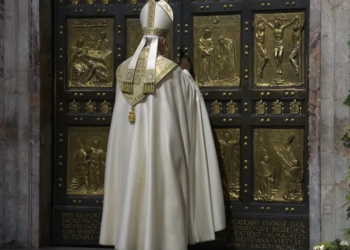
In crafting its new college-ranking system, City Journal has made the unusual—but, we believe, wise—choice to reward institutions that host a School of Civic Thought on campus. But what are Schools of Civic Thought, and why should parents and students consider their presence (or absence) when choosing where to enroll?
“Civic thought” refers to a rapidly growing field of study that focuses on the human capacity for thinking and acting as citizens. Human beings are born into cultural and political worlds woven by previous generations, and are obliged to understand, preserve, and improve upon this inheritance. But most contemporary universities don’t provide the opportunity to study the arts of self-governance.
Finally, a reason to check your email.
Sign up for our free newsletter today.
Enter the Schools of Civic Thought. Schools of Civic Thought are entirely new academic units, with the same powers as other departments, dedicated to offering university-level civic education. Since citizenship is always exercised in a particular time and place, their curricula focus on the American political tradition. The University of Florida’s Hamilton School for Classical and Civic Education, for example, offers a course called “What Is America For?” The University of Tennessee’s Institute for American Civics offers “Construction and Reconstruction of the American Republic.” While similar courses were once taught in history or political science departments, they have fallen largely out of favor.
Most of these schools contextualize the development of American ideals and institutions within a broader framework about the challenge of governing ourselves. The School of Civic Leadership at the University of Texas at Austin, for example, requires majors to take a course in “Perennial Problems in Civic Thought.” Such a broad vantage makes sense; after all, human self-government stretches back through British constitutionalism to classical republicanism, which itself has roots in a story that spans East and West.
Some Schools of Civic Thought are integrating the social sciences into their offerings. This work is underway at Ohio’s State’s Chase Center, which incorporates sociology and anthropology into its curricula, and the University of Texas’s aforementioned School of Civic Leadership, which combines offerings in economics with constitutional theory and moral philosophy. Such efforts at unifying disciplines are rare in the fragmented modern university.
Finally, Schools of Civic Thought often host civil discourse programs, which help students learn to talk about our most divisive political problems. These are essential, since a well-formed citizen must learn to navigate pluralism. For example, Arizona State’s School of Civic and Economic Thought and Leadership (SCETL), founded in 2017, offers a class in “Left and Right Around the World.” Indeed, the schools themselves often bring intellectual pluralism to their campuses by building curricula and hiring faculty in fields of interest to conservatives.
SCETL was the nation’s first of School of Civic Thought. By the early 2020s, however, such schools began appearing across the U.S., with flagship public institutions, such as the University of North Carolina at Chapel Hill and the University of Texas, launching their own in 2023. Schools of Civic Thought now operate at approximately 15 public institutions in ten states, with more in development.
Elite private institutions are paying attention. Johns Hopkins University, Stanford University, and Harvard University are hosting conferences and discussions of civic thought. Yale University recently announced the creation of a Center for Civic Thought.
Civic-thought programs are a boon to academia. They have already created about 200 teaching and tenure-track academic positions, making them one of the only areas of the humanities and social sciences where jobs are plentiful and enrollments are growing.
But what matters most is what these programs do for students. Schools of Civic Thought have their own faculty and attract scholars genuinely devoted to teaching—a trait not to be taken for granted in elite universities where research can be all-consuming. Students in these programs are also likely to fare well on the job market, as they will have been educated to be thoughtful about their inheritance and creative and collaborative in maintaining it. Some may dedicate their lives to public service.
Schools of Civic Thought often build community among students, offering an alternative to the anonymity that can characterize large public institutions. The University of North Carolina’s School of Civic Life and Leadership, for instance, hosts a Civil Discourse residential community. Program director Flynn Cratty, who teaches courses such as “Pursuing the Good Life,” seeks to create opportunities for real fellowship through the community, offering everything from student-led discussions of controversial questions to camping trips where common readings animate conversations around the fire.
As a student at Texas’s School of Civic Leadership says of “Truth and Persuasion,” his favorite class: “Nothing is more valuable than the truth, and few things are more fun than conversation. In ‘Truth and Persuasion,’ we attempt to get to the bottom of the former by employing the latter. Put those two things together, plus a fun teacher and amazing classmates, and I can think of very little in my life which brings me more glee.”
The presence of such a program on campus is a bellwether for parents and students—a sign that an institution is determined to recover lost elements of the great American tradition of civic and liberal education, combine that inheritance with new approaches to knowledge, and create from that mix a rite of passage into responsible adult life. In counting the presence of such schools as an important part of its rankings, City Journal has identified a revealing marker of a campus’s educational vitality.
Photo by Wesley Hitt/Getty Images
City Journal is a publication of the Manhattan Institute for Policy Research (MI), a leading free-market think tank. Are you interested in supporting the magazine? As a 501(c)(3) nonprofit, donations in support of MI and City Journal are fully tax-deductible as provided by law (EIN #13-2912529).
Source link

















